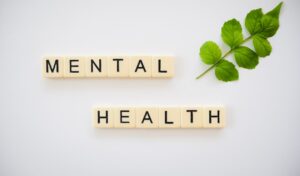Mental health emergencies represent critical situations where an individual experiences a significant deterioration in their mental well-being, often leading to behaviors that may pose a risk to themselves or others. These emergencies can manifest in various forms, including severe anxiety attacks, suicidal ideation, psychotic episodes, or extreme mood swings. The complexity of mental health emergencies lies in their unpredictability and the diverse range of symptoms that can arise, making it essential for individuals, families, and communities to be equipped with the knowledge and skills to recognize and respond effectively.
The prevalence of mental health emergencies has been exacerbated by various societal factors, including the ongoing stressors of modern life, economic instability, and the lingering effects of global crises such as the COVID-19 pandemic. As mental health awareness grows, so does the understanding that these emergencies are not isolated incidents but rather symptoms of broader systemic issues. Recognizing the signs early can be crucial in preventing escalation and ensuring that individuals receive the appropriate support and intervention they need.
Key Takeaways
- Mental health emergencies can include suicidal thoughts, severe panic attacks, and psychotic episodes.
- Signs of a mental health crisis may include extreme mood swings, withdrawal from social interactions, and self-harming behaviors.
- When responding to a mental health emergency, it’s important to stay calm, listen actively, and offer support without judgment.
- Seeking professional help for mental health emergencies may involve contacting a crisis hotline, taking the person to the emergency room, or reaching out to a mental health professional.
- Supporting a loved one in a mental health crisis involves showing empathy, encouraging them to seek help, and providing a safe and supportive environment.
Signs and Symptoms of a Mental Health Crisis
Identifying the signs and symptoms of a mental health crisis is vital for timely intervention. These indicators can vary widely among individuals but often include drastic changes in behavior, mood, or thought processes. For instance, someone experiencing a mental health crisis may exhibit extreme agitation or withdrawal from social interactions.
They might express feelings of hopelessness or despair, which can be particularly alarming if accompanied by talk of self-harm or suicide. Physical symptoms such as changes in sleep patterns, appetite fluctuations, or unexplained physical ailments can also signal underlying mental distress. In addition to behavioral changes, cognitive symptoms may emerge during a mental health crisis.
Individuals may experience confusion, disorientation, or difficulty concentrating. In some cases, they might have delusions or hallucinations, leading to a distorted perception of reality. Recognizing these signs is crucial for friends and family members who may be the first to notice changes in their loved ones.
Understanding that these symptoms are not merely phases but potential indicators of a serious crisis can empower individuals to take action and seek help.
How to Respond to a Mental Health Emergency

Responding effectively to a mental health emergency requires a calm and compassionate approach. The first step is to ensure the safety of the individual in crisis as well as those around them. If there is an immediate threat of harm, it may be necessary to contact emergency services or law enforcement.
However, if the situation allows for it, engaging in a supportive dialogue can be beneficial. Listening without judgment and validating the individual’s feelings can help them feel understood and less isolated in their distress. It is essential to approach the individual with empathy and patience.
Phrases like “I’m here for you” or “You’re not alone” can provide reassurance. Encouraging them to express their feelings openly can facilitate communication and help de-escalate the situation. It is important to avoid dismissive language or minimizing their experiences, as this can exacerbate feelings of shame or isolation.
Instead, fostering an environment where they feel safe to share their thoughts can lead to more productive conversations about seeking help.
Seeking Professional Help for Mental Health Emergencies
When a mental health crisis escalates beyond what friends or family can manage, seeking professional help becomes imperative. Mental health professionals are trained to assess and intervene in crises effectively. This may involve therapy sessions, medication management, or even hospitalization in severe cases where safety is a concern.
Understanding when to seek professional help is crucial; if an individual exhibits suicidal thoughts, self-harming behaviors, or severe disorientation, immediate intervention is necessary. In many communities, there are resources available specifically designed for crisis situations. Hotlines staffed by trained counselors can provide immediate support and guidance over the phone.
Additionally, many hospitals have psychiatric emergency departments equipped to handle acute mental health crises. Engaging with these resources not only provides immediate assistance but also connects individuals with ongoing support systems that can aid in their recovery journey.
Supporting a Loved One in a Mental Health Crisis
Supporting a loved one during a mental health crisis can be both challenging and rewarding. It requires a delicate balance of empathy, understanding, and practical support.
Offering to listen without judgment allows them to express their feelings freely while knowing they have someone who cares about their well-being. Encouraging professional help is another critical component of support. While friends and family can provide emotional backing, they are not substitutes for trained professionals who can offer specialized care.
It’s essential to approach this suggestion gently; framing it as a positive step towards healing rather than an indication that they cannot cope alone can make a significant difference in how it is received. Additionally, helping them navigate the process of finding resources—whether it’s scheduling appointments or researching local mental health services—can alleviate some of the burdens they may feel during this difficult time.
De-escalation Techniques for Mental Health Emergencies

De-escalation techniques are vital tools for managing mental health emergencies effectively. These strategies aim to reduce tension and prevent situations from escalating into crises that could lead to harm. One fundamental technique involves maintaining a calm demeanor; your body language and tone of voice can significantly influence the emotional state of the person in crisis.
Speaking softly and slowly while maintaining an open posture can create a sense of safety. Active listening is another powerful de-escalation technique. This involves not only hearing what the individual is saying but also reflecting back their feelings and concerns.
Phrases like “It sounds like you’re feeling overwhelmed” can validate their emotions and demonstrate that you are engaged in the conversation. Additionally, offering choices—such as suggesting they take a walk or sit down somewhere quiet—can empower them by giving them a sense of control over their situation.
Resources for Mental Health Crisis Intervention
Accessing appropriate resources during a mental health crisis is crucial for effective intervention. Many communities offer crisis hotlines that provide immediate support from trained professionals who understand how to navigate these challenging situations. For example, the National Suicide Prevention Lifeline offers 24/7 assistance for individuals in distress, connecting them with counselors who can provide guidance and support.
In addition to hotlines, local mental health organizations often have resources available for crisis intervention. These may include mobile crisis units that can respond directly to individuals in need or community centers that offer walk-in services for urgent mental health concerns. Hospitals also play a critical role; many have psychiatric units specifically designed to handle acute crises safely and effectively.
Familiarizing oneself with these resources ahead of time can make all the difference when an emergency arises.
Self-care and Coping Strategies for Dealing with Mental Health Emergencies
Coping with the emotional toll of supporting someone through a mental health emergency requires self-care strategies for both caregivers and those experiencing crises. It’s essential for caregivers to recognize their own limits; providing support can be draining, and neglecting personal well-being can lead to burnout. Engaging in regular self-care practices—such as exercise, mindfulness meditation, or pursuing hobbies—can help maintain emotional balance.
For individuals experiencing a mental health crisis, developing coping strategies is equally important. Techniques such as grounding exercises—focusing on physical sensations or breathing techniques—can help manage overwhelming emotions in the moment. Journaling thoughts and feelings can also serve as an outlet for expression and reflection during difficult times.
Establishing a routine that includes healthy habits like regular sleep patterns, balanced nutrition, and social connections can foster resilience and aid recovery in the long run. Understanding mental health emergencies requires awareness of their complexities and nuances. By recognizing signs and symptoms early on, responding with empathy, seeking professional help when necessary, supporting loved ones effectively, employing de-escalation techniques, utilizing available resources, and prioritizing self-care strategies, individuals can navigate these challenging situations with greater confidence and compassion.
In the realm of mental health literature, “Mental Health Emergencies” by Nick Benas and Michele Hart serves as a crucial resource for understanding and managing acute psychological crises. For those interested in exploring further, an insightful article that complements the themes discussed in Benas and Hart’s work can be found on HellRead. This article delves into the nuances of mental health support and offers additional perspectives on handling emergencies effectively. To read more about these important discussions, you can visit the article by clicking on this link.
FAQs
What is a mental health emergency?
A mental health emergency refers to a situation in which an individual is experiencing a severe mental health crisis that requires immediate intervention. This can include thoughts or actions of self-harm, harm to others, severe panic attacks, psychosis, or other symptoms that pose a risk to the individual or others.
What are some signs of a mental health emergency?
Signs of a mental health emergency can include extreme agitation, aggression, hallucinations, delusions, severe depression, suicidal thoughts or actions, self-harm, or an inability to care for oneself. It is important to seek help if you or someone else is experiencing these symptoms.
What should I do if I or someone else is experiencing a mental health emergency?
If you or someone else is experiencing a mental health emergency, it is important to seek immediate help. This can include calling emergency services, going to the nearest emergency room, or contacting a mental health crisis hotline. It is important to take any threats of harm seriously and seek professional help as soon as possible.
How can I help someone in a mental health emergency?
If you encounter someone in a mental health emergency, it is important to stay calm and offer support. Encourage the individual to seek professional help and, if necessary, assist them in contacting emergency services or getting to a safe place. It is important to take any threats of harm seriously and not to leave the individual alone if they are at risk of harming themselves or others.







